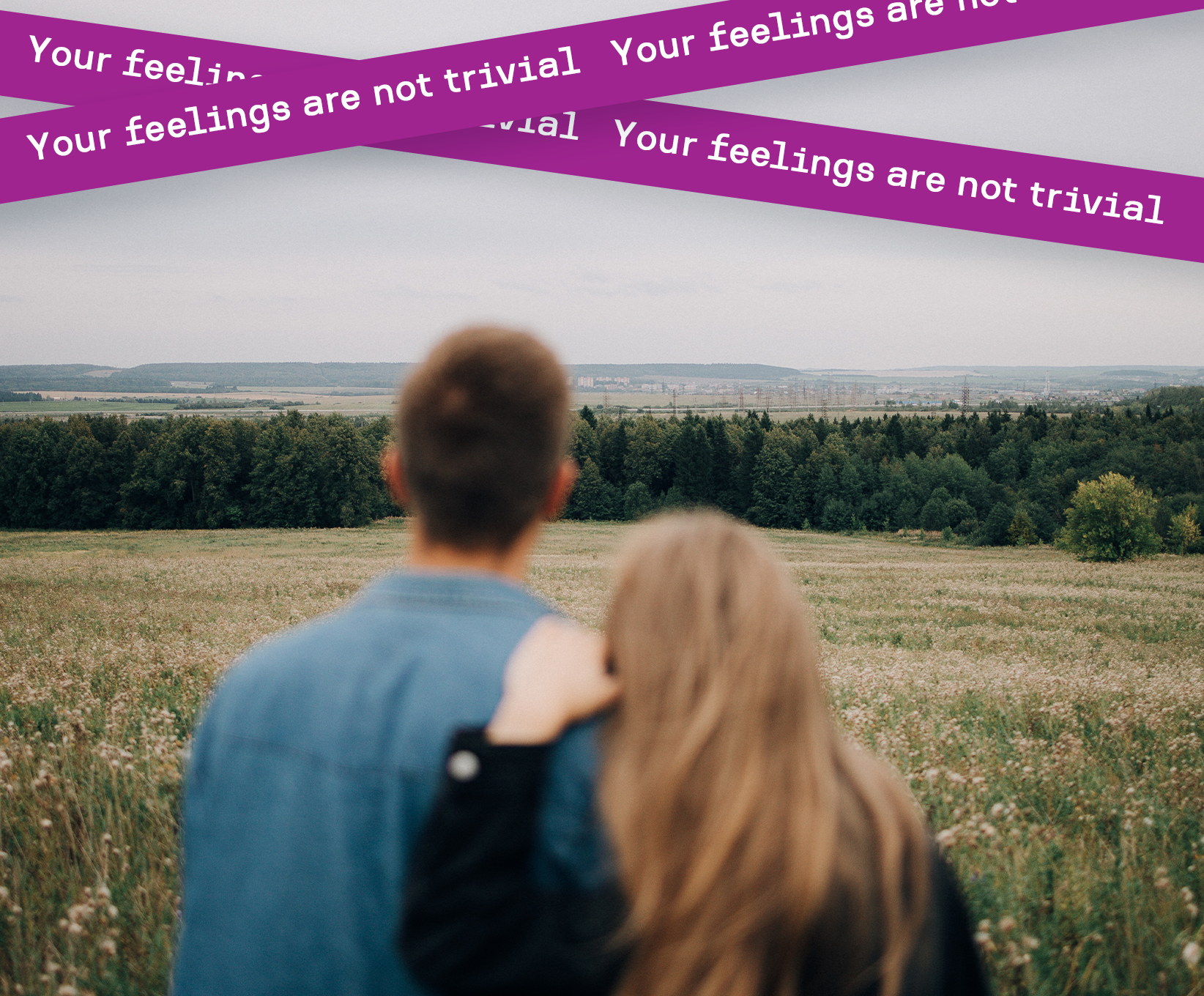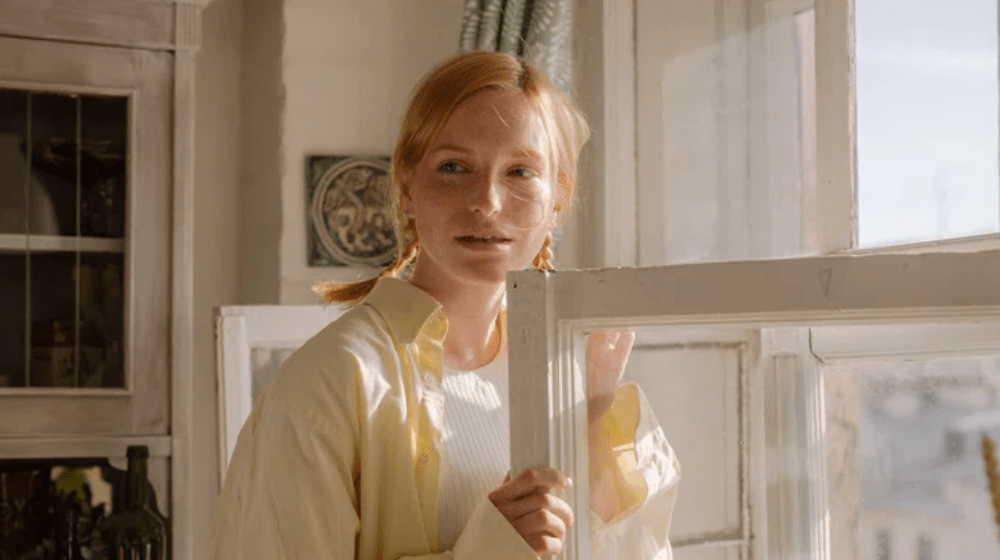"Like a ray of sunshine on a rainy day", "just a bomb", "it's like talking to a friend". That is how some of the hundreds of Ukrainian clients of the virtual platform for psychological counseling "No trivia" describe their experience using the platform.
When Russia started a full-scale war against Ukraine, UNFPA, the United Nations Population Fund in Ukraine, with the British government's support, scaled up this educational project to address mental health issues and provide psychological assistance to teenagers. After all, they, unlike adults, often have limited access to it.
"The project has expanded into two components — relationships with one's self and relationships with others," says UNFPA project coordinator Nadiia Kovalevych. "They are connected, as all negative emotions and unlived stress affect relationships with others and can lead to increased violence."
UNFPA implements "Not trivia" in cooperation with the youth NGO "Molodvizh". Teenagers discuss not only the topic of healthy and toxic relationships, but also emotions, feelings, and experiences that the war has caused or exacerbated. These topics are conveyed to the target audience through the website with educational articles, an Instagram page, and the chatbot "No Trivia" in Telegram — @no_trivia_bot. It was launched on Youth Day on August 12.
Since then, almost 20 thousand teenagers have already used the chatbot. At first, the bot offers users to assess their emotional state and determine the problem that worries them. Then, based on the results of the questionnaire, the bot suggests teenagers useful thematic materials, relaxation techniques, or a session with a psychologist, which takes place directly in the chat — free of charge and anonymously.

Mental health is at the top
According to Nadiia Kovalevych, before the launch of the bot, there were fears that online psychological counseling would not be popular among teenagers. However, this prejudice shattered. The queue of people willing to chat with a psychologist formed during the first two days. To cope it was necessary to increase the staff of specialists almost three times. Currently, 14 psychologists are consulting on the platform. The average conversation with a teenager lasts nearly an hour and a half.
"It was a discovery that mental health is at the top," said Nadiia Kovalevych. According to her, "word of mouth" and feedback in social networks work so well that there is still no need to launch a large-scale promotional campaign for the project.
Despite the war in Ukraine, children live their lives
During three months of the chatbot's work, psychologists have processed almost 3500 requests from young people. The online psychological support service was launched precisely because of the war. Nevertheless, the most common problems of teenagers are still typical for their age: misunderstandings with parents, issues in relationships with peers, in romantic relationships, worries about mental health, and difficulties in regulating emotions. At the same time, statistics say that issues related to the war are not even in the top ten requests.
"Children still live their lives. Although, in fact, all requests are somehow related to the war, because they live in a country where it continues", says Dana Yakovenko, senior psychologist of the virtual platform. "Their friends have left, and their relatives may be in the Armed Forces or dangerous cities. This context often affects their condition, causing anxiety or depression. At the same time, they are teenagers, the task of their age is to understand themselves and understand themselves in relation to others, and it must be solved despite the war."
War causes the prevalence of self-harm
Also, the problem of self-injury has become more widespread because of the war, as self-harm is a way to regulate emotion when it is impossible to express anxiety.
Sometimes clients send psychologists photos of their cuts, expecting a reaction.
"We have to demonstrate that we are ready to withstand the emotions that the teenager brings to this chat", said a senior psychologist. "To show that we are stable enough not to scold them for it, not to be scared, but to react as professionally, friendly and supportive as possible."
Children share their trauma
Psychological counseling in the chatbot "No trivia" is not crisis assistance. In emergency cases, the bot directs the teenager to emergency services and specialized hotlines.
Before the chatbot launch, experts expected that teenagers would turn to them with life issues, but the practice has proved otherwise.
"It turned out that it is easier for a teenager to report issues in an anonymous chat—to write to a psychologist whom he doesn't see and who does not see him," said Dana Yakovenko. "We ended up as those whom children to share any troubles. We talk a lot about violence, and sexual violence as well. Then our task is to support children, their idea of addressing this to someone and refer them for targeted help — for example, long-term therapy."
According to the psychologist, anonymity has another side of the coin — the inability to report a suspected crime. At the same time, this confidentiality ensures trust.
"If a case reported to us goes public, it will be good for one teenager, but it may turn others away from us who fear publicity," says Dana Yakovenko. That's why psychologists of the platform do not even see the client's nickname in Telegram.
Teenagers come back for consultations
The number of follow-up consultations proves the teenagers' trust in the service. More than 35 percent of appeals are secondary. According to the senior psychologist, teenagers often come back with other issues.
"Sometimes the teenager first checks whether it is possible to deal with us, appeals with less painful requests," said Dana Yakovenko. "When he realizes that there is empathic support here, that we do not criticize, and can withstand emotionality from him, he shares deeper requests, fears with us."
Teenagers frequently need medical help. "Very often, what seems to be laziness, procrastination, can be hidden depression," said Dana Yakovenko. If psychologists identify signs of any disorders during counseling, they advise the child to talk to his parents and visit a doctor.
"If it is depression, our consultation will not be helpful. Therefore, our task is to educate them on how mental health care is provided in general, where they can turn for help," said the senior psychologist. "One of my clients was very afraid of antidepressants. We talked with her about the reasons for their prescription, how they work and how they can help. We also agreed that she would discuss it with her mother. It is how we try to return children to their parents, and parents to take responsibility for the situation."
The head of the "MoloDvizh Center. Lviv" Roman Tsudnyi says that "No trivia" is one of the most meaningful projects for young people and that the need for it will only grow over time.
"The war is a catalyst for all the problems of young people. When it is unclear what tomorrow will bring, the sense of justice, which is inherently for teenagers, becomes very acute. It affects relationships with others," Tsudnyi said.
According to the head of the youth organization, the psychological assistance platform is so popular due to the suitable format of consultations, as "young people do not like to communicate by phone".
Only letters and emoticons
At the same time, for the psychologists, text counseling is a great but interesting challenge, said Dana Yakovenko.
"On the one hand, it is easier that we have time to formulate the message same as the teenager does. But we are very limited because the non-verbal part of communication is impossible — I mean eye contact, facial expressions, gestures, and intonations. It requires ingenuity — how, with the help of only letters and emoticons, to make it clear to the teenager that we support him," the psychologist said.
Another project's task is to attract more boys, as they currently make up only 7.5% of the total number of clients.
In addition, UNFPA plans to strengthen the educational component of the chatbot to raise awareness among young people about mental health.
"We will add to the bot all sorts of interactive activities that can occupy teenagers' attention. We will expand the number of exercises, various tests, and materials that can help before communication with a psychologist," said Nadiia Kovalevych. Also, among the plans – is to launch micro-educational courses for young people on healthy relationships and mental health.
After all, only understanding your condition already relieves a lot of stress, said psychologist Dana Yakovenko.


